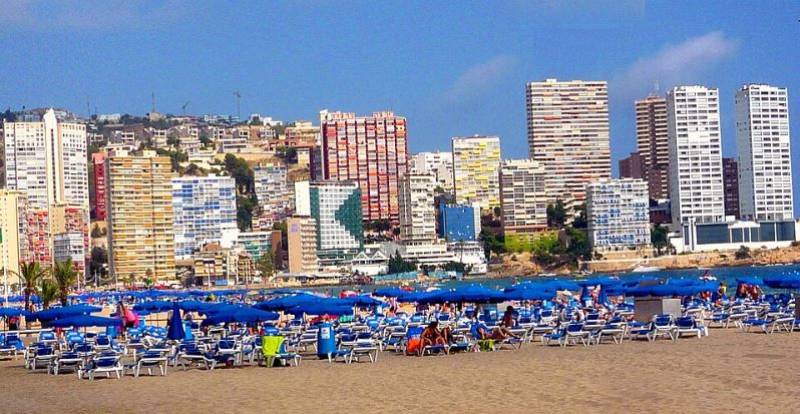Date Published: 01/07/2025
Will 2025 be the busiest summer season Spain has ever seen?
ARCHIVED ARTICLE -
The high season in Spain kicks off with record prices, bookings and foreign tourist arrivals
Spain isn’t shy about setting records, or indeed breaking its own. We’ve just had
the hottest June day ever experienced (Saturday the 28th if you’re wondering) and virtually all of the country’s airports are smashing passenger numbers month after month. Since we’re on a roll, could the summer of 2025 prove to be Spain’s busiest ever?
As with most things, hotels, bars and restaurants are all
considerably more expensive today than they were last year; nevertheless, the sector believes it will continue its upward momentum, with record staffing forecasts also being set.
With the summer season properly kicking off on July 1, international tourists are already on track to surpass the 100 million visitor mark by the end of the year. That’s according to the State Society for the Management of Tourism Innovation and Technologies (Segittur), which estimates that 2.7% more foreign holidaymakers will arrive between July and August than last summer.
Spain is expected to receive 11.17 million international tourists in July to which another 11.2 million will be added in August, for a total of 22.37 million.
Everything indicates that this record influx will be accompanied by unprecedented spending, which is actually expected to grow at a faster rate than arrivals. Specifically, a total expenditure of €32.208 billion is forecast—4.2% more than in 2024—with an average expenditure per international tourist of €1,440—1.5% more than last year.
But while holiday budgets don’t look any tighter, there’s little doubt all foreign visitors will feel a bit of a pinch. The data show that hotels, hostels and other similar touristy accommodations have become 6.8% more expensive in the last 12 months, while campsites have risen in cost by 4.4% since May.
Private vacation rentals aren’t immune either. According to a study by the appraisal firm Tecnitasa, renting a holiday apartment on the beach in August is 6.9% more expensive than a year ago. The average is now a budget busting €1,270 euros per week, compared to €1,160 euros in 2024.
INE data indicates that restaurants and cafes have also increased in price by an average of 4.1% in the last year, as has another summery staple: ice cream, which is 3.8% more expensive than twelve months ago.
Despite gloomy predictions,
airline ticket prices have remained more stable. In fact, international flights are even 0.9% cheaper now, while domestic flights have risen by just 2.4%. The opposite has happened with package tours: services booked in Spain have become 3.3% cheaper, while travel packages abroad have increased by 4.7%.
Overall though, these price increases have done nothing to dampen the optimistic expectations of the tourism sector. In the Valencian Community, for example, the regional tourism business association Hosbec expects to repeat the 85% hotel occupancy rate of 2024 , with coastal destinations such as Benidorm and Gandía within striking distance of "technical full capacity."
In line with the positive sentiment in the sector, the summer season is expected to generate a record of around 698,340 new jobs this year, representing a 9.4% increase in jobs compared to last year. These are forecasts by Randstad Research, which calculates that the catering sector will account for 246,945 of these contracts, followed by 300,300 in transport and logistics and 133,015 in retail, among other sectors.
It is anticipated that 46% of these jobs generated for the summer season will be concentrated in
Andalucía, Catalonia and Madrid.
article_detail

|












